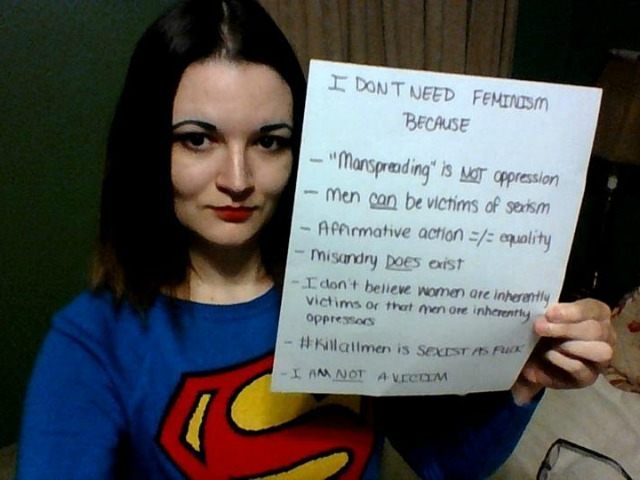More people believe that feminism is irrelevant than call themselves a feminist, a survey has revealed. However, two in three Brits say that more needs to be done for women’s equality in our society, leading to a feminist organisation declaring Britain a nation of ‘hidden’ feminists. The survey results don’t bear this conclusion out.
The results were revealed in a recent Survation poll for The Fawcett Society, in which more than 8,000 British adults were quizzed on their attitudes to gender and feminism.
It found that, while seven per cent of Brits identify as a feminist, nine percent say they believe feminism to be irrelevant. A further 61 per cent believe in equality between the sexes, but say they are not a feminist.
The Fawcett Society has used these results to co-opt the vast majority of Britain into the ranks of the feminists. Chief Executive Sam Smethers said: “The overwhelming majority of the public share our feminist values but don’t identify with the label. However the simple truth is if you want a more equal society for women and men then you are in fact a feminist.”
Yet the results themselves do not support her conclusion. When asked whether they wanted women to have the same opportunities as men in society, 81 per cent of women and 86 per cent of men agreed that they did. Yet just nine per cent of women, and four per cent of men actually identified as feminists when asked, suggesting that they drew a conscious distinction between equal rights and feminism.
Indeed, when asked to say the first word that came to mind when thinking of feminism, negative words such as ‘bitchy’ were the most popular – 26 per cent of respondents came up with a negative connotation, while 22 per cent said something positive such as “strength”. 17 per cent thought of political connotations such as “suffragette”, while a further 17 per cent responded with gender linked words such as “woman”.
The results also show that modern feminism is polarising young people: 31 per cent of women under the age of 35 consider themselves a feminist, but a further 11.5 per cent of young women said they were opposed to feminism. By contrast, just 4.5 per cent of women over 65 are feminists, against 1.6 per cent of older women who oppose it.
Young men are even more polarised over modern feminism: whereas 20 per cent of men under 35 consider themselves feminists, a further 18 per cent are opposed to feminism. Among men over the age of 65, just two percent consider themselves feminists, against nearly three per cent who oppose it.
The answer may lie in the perception among modern feminists that discrimination only goes one way, against women. Smethers concludes that the survey shows: “We need to work together to speed up the pace of change and achieve women’s equality for the benefit of all.” Again, the results show a different picture.
The survey did uncover apparent inequalities in the workplace against women: 34.7 per cent of the men surveyed said they take part in decision making around recruitment in their workplace, against 25.4 per cent of women who said the same, suggesting that more men have senior roles at work.
However, it also showed that men are three times more likely to be separated from their children. Of those with children under the age of 18, just 2.8 per cent of women said that their children did not live with them or only do so some of the time, against 11.2 per cent of men whose children do not live with them, or only live with them some of the time.
The results therefore suggest that the British people are exactly right regarding their own motives: they are indeed supportive of equality but are not a nation of “hidden” feminists.

COMMENTS
Please let us know if you're having issues with commenting.